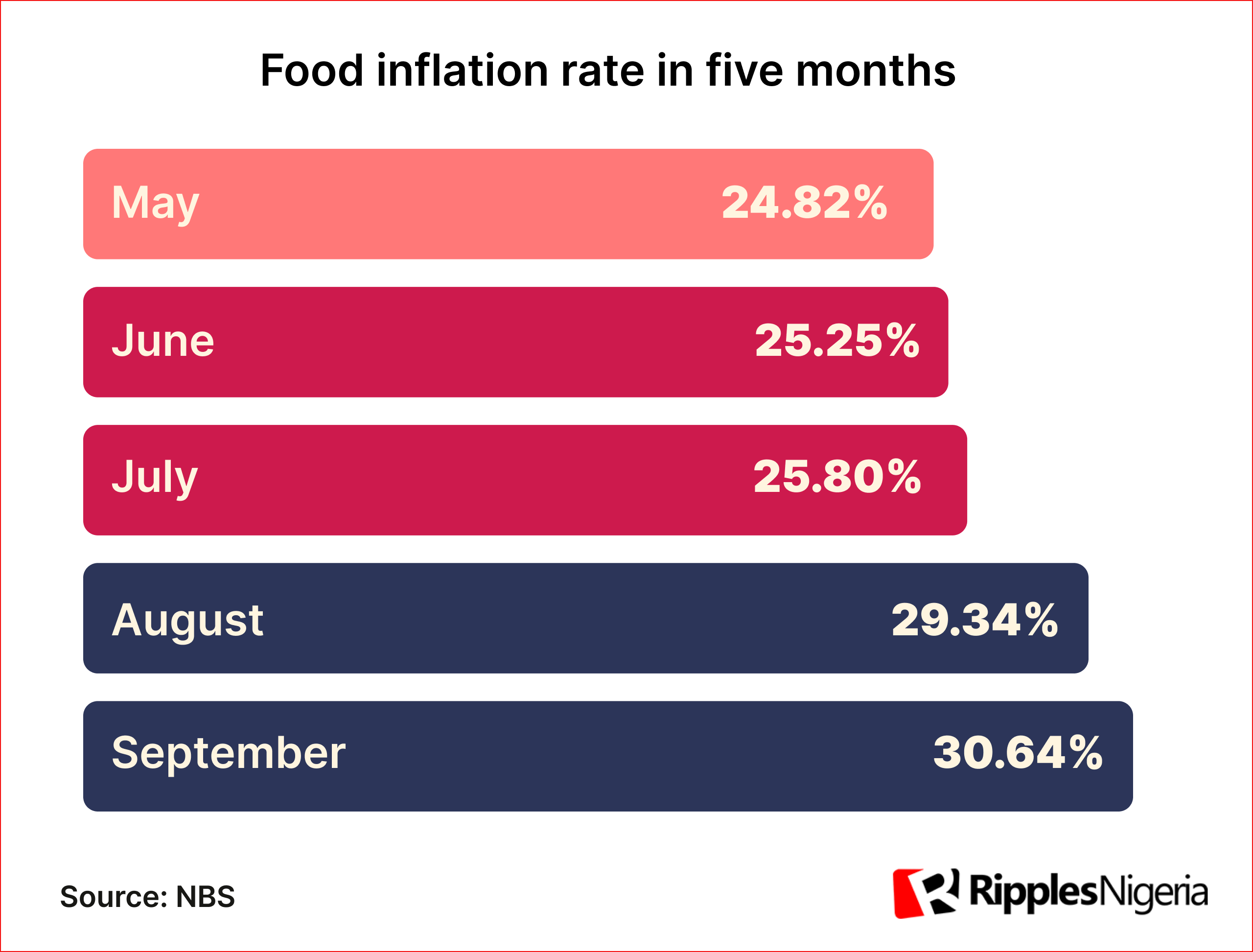Ripples Metrics
RipplesMetrics: Market survey on food prices after subsidy removal shows steady increase

Buhari Abosede, a local trader in Ado-Ekiti market, struggles daily to make proper sales due to the rising cost of goods caused by the removal of fuel subsidy.
In her store, she sells foodstuff, and household materials like towels and utensils including body lotions. Still, she has recently included selling charcoals just to make a daily income that would settle the meal for both her and her two children.
According to Abosede, the removal of fuel subsidies has impacted both traders and buyers as people barely patronise the market due to the skyrocketing price of products.
She said, “The increasing fuel price is what is affecting the market. There is no money and sales are not moving. Our prayer is that everything settles in time.”
The trader said that the effort of the president to reform the economy is very laudable including the removal of fuel subsidy but she hopes that the reforms can be quickened to relieve the hardship on both marketers and buyers.
Since the removal of subsidies on fuel, on May 29 during the inauguration of President Bola Tinubu, millions of Nigerians like Abosede are grasping for survival as prices of goods have more than doubled.
Using the data from the National Bureau of Statistics, the inflation rate which was about 22.41 per cent in May has increased by 4.31 per cent to 26.72 per cent as of September 2023.
Also, the food inflation rate stood at 30.64 per cent in September. NBS says that the average price of 1kg of beef is N2,816.91; the average price of 1kg of rice is sold at N757.06 while 1kg of beans is sold at N716.97.
According to Abosede, Tomatoes which were sold for N7,000 as of 2022 are now more than N16,000. Also, a bag of rice which sold below N25,000 as of the beginning of this year sells for N35,000 to N40,000.
As of last year, a crate of eggs was sold for N2000, but it has risen between N2500 and N3000. While a keg of palm oil and groundnut oil which were sold for N22,000 now sells for N30,000.
READ ALSO:RipplesMetric: 23 Nigerian states attracted zero capital inflow in one year
“The only reason for all these increases is the fuel prices because most of these products are transported mostly from outside the state”, she noted.
Several marketers like her who buy products from outside the state would factor in the cost of transportation into selling their goods. This means that the higher the prices of petrol would depend on how much the product would be sold.
Also, for products imported into the country, the exchange rate plays a key role in how much products are being sold. As of now, the dollar exchange rate to the naira sits above N900/1$.
Other market survey
Adagba Bolatito, another trader, said that the prices of products have gradually increased in the last few months.
“Bag of Rice and Beans are sold between N37,000 and N40,000. A pack of noodles and spaghetti is between N10,000 and N15,000 depending on the type of product”, she said.
Bolatito added that the price of goods only decreases or increases in the market depending on the inflow of the market and how their supplier supplies them.
Another trader, Veronica Peter who sells Palmoil said its prices vary most often as most of the prices are tied to the transportation of oil from where it is produced.
“I buy my oil from states like Sokoto, Niger, Kano and other northern state and with the increasing fuel prices, my product price can change after all costs are considered”, she said.
Veronica however explains that currently the price of palm oil ranges between N20,000 and N25,000.
RipplesMetrics has reported an analysis of the inflation rate and how Nigerians are settling with the economic policies enacted by Tinubu. However, several traders interviewed looked forward to seeing the reform of the president as they struggled with the subsidy hardship.
By James Odunayo
Join the conversation
Support Ripples Nigeria, hold up solutions journalism
Balanced, fearless journalism driven by data comes at huge financial costs.
As a media platform, we hold leadership accountable and will not trade the right to press freedom and free speech for a piece of cake.
If you like what we do, and are ready to uphold solutions journalism, kindly donate to the Ripples Nigeria cause.
Your support would help to ensure that citizens and institutions continue to have free access to credible and reliable information for societal development.
























